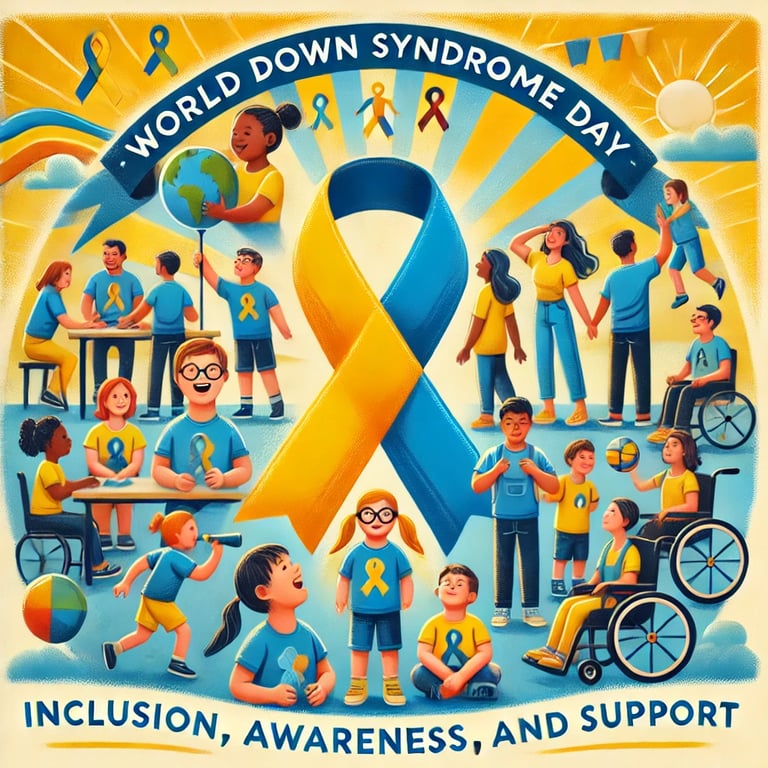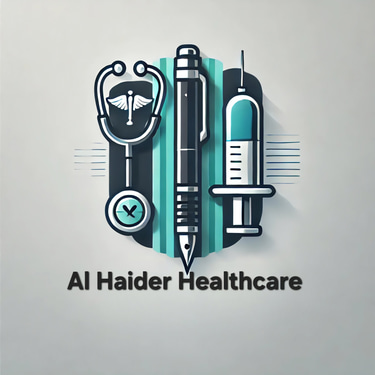

World Down Syndrome Day is observed every year on March 21st to raise awareness about Down syndrome (Trisomy 21), a genetic condition affecting millions worldwide. This day emphasizes the rights, inclusion, and well-being of individuals with Down syndrome. At Al Haider Healthcare, we believe in spreading awareness to promote early diagnosis, supportive management, and a better quality of life for affected individuals.
World Down Syndrome Day: Understanding, Prevention, and Management
What is Down Syndrome?
Down syndrome is a genetic disorder caused by the presence of an extra chromosome 21 in a person's DNA. This additional genetic material alters development, leading to characteristic physical traits, intellectual disability, and an increased risk of medical conditions.
Types of Down Syndrome
Trisomy 21 (95% cases) – An extra copy of chromosome 21 is present in all body cells.
Translocation Down Syndrome (3-4%) – A part of chromosome 21 attaches to another chromosome.
Mosaic Down Syndrome (1-2%) – Some cells have an extra chromosome 21, while others do not.
Risk Factors for Down Syndrome
Several factors increase the likelihood of having a child with Down syndrome:
Advanced Maternal Age: Women above 35 have a higher risk.
Genetic Translocation: A parent carrying a balanced translocation can pass it to their child.
Previous Child with Down Syndrome: Parents who already have a child with Down syndrome have a higher risk in future pregnancies.
Statistics
According to the World Health Organization (WHO) and Centers for Disease Control and Prevention (CDC):
Globally, 1 in 700 babies is born with Down syndrome.
In India, an estimated 23,000–29,000 babies are born with Down syndrome annually (Ministry of Health and Family Welfare, MoHFW, India).
Prevention and Early Diagnosis
Although Down syndrome cannot be prevented, early screening and prenatal testing can help parents make informed decisions.
Prenatal Screening Tests:
First Trimester Combined Test (Blood test + Ultrasound NT scan)
Non-Invasive Prenatal Testing (NIPT) – DNA test from maternal blood
Quadruple Marker Test (AFP, hCG, Estriol, Inhibin A levels)
Diagnostic Tests (Confirmatory):
Chorionic Villus Sampling (CVS) (10-13 weeks)
Amniocentesis (15-20 weeks)
Cordocentesis (after 20 weeks, rarely used)
Management of Down Syndrome
Down syndrome is a lifelong condition, but early intervention and medical care can help individuals lead productive lives.
Medical Care & Support
Regular Health Checkups: Screening for heart defects, thyroid disorders, vision & hearing problems.
Physical & Occupational Therapy: Helps improve motor skills and independence.
Speech Therapy: Supports language development.
Special Education Programs: Encourages cognitive development and learning skills.
Family & Social Support
Parent Training Programs: Helps parents understand and manage their child's needs.
Inclusive Education & Employment Opportunities: Encourages independence and self-confidence.
Support Groups & NGOs: Community organizations like Down Syndrome Federation of India (DSFI) offer resources and support.
Conclusion
Down syndrome is a manageable condition, and with proper medical care, educational support, and social inclusion, individuals with Down syndrome can lead healthy, fulfilling lives. On World Down Syndrome Day, let us pledge to create an inclusive society, ensuring equal rights and opportunities for all.
For more information, visit Al Haider Healthcare (achhospital.in) or consult your healthcare provider.
References
World Health Organization (WHO) – https://www.who.int
Centers for Disease Control and Prevention (CDC) – https://www.cdc.gov
Ministry of Health and Family Welfare, India (MoHFW) – https://www.mohfw.gov.in
Down Syndrome Federation of India (DSFI) – https://www.downsyndrome.in
